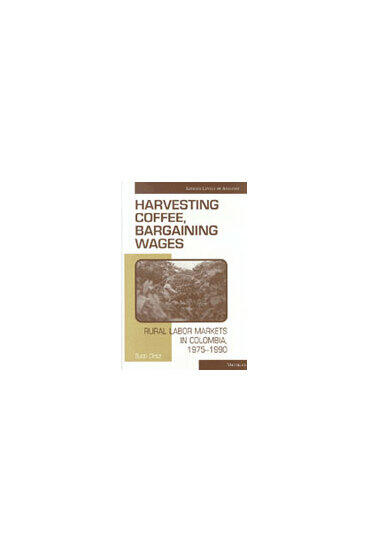Harvesting Coffee, Bargaining Wages
Rural Labor Markets in Colombia, 1975-1990
A close ethnographic study of how culture, power, gender, and institutions affect labor exchanges
Description
Harvesting Coffee, Bargaining Wages offers an insightful scrutiny of rural market behavior and a convincing explanation of why farmers fail sometimes to manage their laborers in ways predicted by market models--and how power imbalances and social conditions can impair the ability of laborers to attain a fair market contract during lax labor market periods.
This empirical study, based on interviews with both farmers and laborers, covers a fifteen-year period characterized by the modernization of production. Ortiz compares three localized coffee labor markets, expanding the analysis by contrasting the strategies used by the coffee farmers in her study areas with those that farmers in other parts of the world adopt in order to cope with similar problems. Her data challenge prevalent generalizations about the consequences of agricultural modernization on laboring families by showing that management practices and contractual arrangements are ultimately molded by local conditions--cultural perceptions of a fair exchange, familial obligations and roles, availability of housing, bargaining power in the home and in the market, kin networks, and information flows--in interaction with national and global influences.
Harvesting Coffee, Bargaining Wages will be of primary interest to anthropologists and sociologists, geographers, political scientists interested in explicit and implicit contract formats, and economists intrigued by the possibility of integrating social variables as contextual aspects of management strategies.
Sutti Ortiz is Associate Professor Emerita of Anthropology, Boston University.
Sutti Ortiz is Associate Professor Emerita of Anthropology, Boston University.

